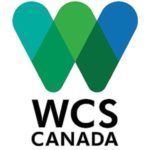
Environmental Contaminants Postdoctoral Fellow
Position Title: Environmental Contaminants Postdoctoral Fellow
Program: Ontario Northern Boreal
Position type: Full time, 2-year position is anticipated
Location: Thunder Bay, ON (preferred, but flexible)
Salary: $65,000.00/year
Position start date: September 2023 (preferred, but flexible)
Date Written/Revised: March 17, 2023
Reports to: Dr. Constance O’Connor
Supervises: N/A
Deadline for application: April 17, 2023
Position Summary:
Wildlife Conservation Society (WCS) Canada (www.wcscanada.org) is seeking highly qualified candidates for a postdoctoral fellowship to support the Ontario Northern Boreal Program (https://www.wcscanada.org/wild-places/ontario-far-north), serving as an expert on environmental contaminants, including mercury and arsenic, in fish that are part of subsistence fisheries.
The successful candidate will join the Learning from Lake Sturgeon (www.learningfromlakesturgeon.ca) project team, and will work closely with Dr. Constance O’Connor and established project partners, including Dr. Gretchen Lescord with the University of Florida and Moose Cree First Nation Resource Protection, to lead the ongoing environmental contaminant aspects of the Learning from Lake Sturgeon program. The successful candidate will also be encouraged to develop and implement new research ideas related to environmental contaminants that fit within the Learning from Lake Sturgeon program, within the broader Ontario Northern Boreal landscape program, and support the development of WCS Canada’s emerging One Health and watersheds program (https://oneworldonehealth.wcs.org/).
Partnership funding for this position is available for a MITACS postdoctoral fellowship (https://www.mitacs.ca/en/programs/elevate/program-details/postdoctoral-fellows). The selected candidate will co-develop a MITACS postdoctoral fellowship application alongside WCS Canada researchers and established program partners for submission in summer 2023, for an anticipated start date in fall 2023. WCS Canada will provide top-up funding to a salary of $65,000/year. This position will include health benefits.
The successful candidate must have a strong background in environmental contaminants, preferably with knowledge of contaminants in fish that are part of subsistence fisheries. This position will require strong skills in statistical analyses, data management, and writing and other communications for a variety of audiences. The position is highly collaborative, and the successful candidate must have experience working and communicating successfully with a variety of partners. The successful candidate must hold a Ph.D. by the start date of this fellowship and should have a strong record of scholarly publications
Position Objectives:
This position supports the WCS Canada Ontario Northern Boreal Program with the objectives:
Lead the environmental contaminant aspects of the Learning from Lake Sturgeon program in collaboration with academic, government, and First Nations partners; and
Develop and implement new collaborative environmental contaminants research that fits within the broader Ontario Northern Boreal program goals and WCS Canada strategic goals.
Primary Responsibilities:
Serve as the Ontario Northern Boreal program team expert on environmental contaminants, including mercury and arsenic
Lead the ongoing environmental contaminant aspects of the Learning from Lake Sturgeon program in collaboration with existing partners
Develop and lead research on environmental contaminants that fit within the Learning from Lake Sturgeon program and broader Ontario Northern Boreal program
Build and maintain long-term relationships with First Nations and academic collaborators, government scientists, and other project partners
Support community and youth engagement within research programs
Manage data following established partnership agreements in a way that is consistent with OCAP principles (https://fnigc.ca/ocap-training/)
Perform statistical analyses and create data summaries for different audiences
Write reports and publications for different audiences including publications in peer-reviewed journals
Support WCS Canada policy comments and scientific advice on environmental contaminants, including supporting the development and direction of WCS Canada’s One Health and watersheds program in a northern context
Required Qualifications
Ph.D. in biology, ecology, chemistry, ecotoxicology, or a related field
Knowledge of environmental contaminants, particularly in wild fish, and how they relate to other aspects of ecology and the environmental
Competency in software for statistical analyses such as R
Evidence of ability to work positively and successfully with project partners, including collaborating and supporting Indigenous collaborators in a research setting
Excellent oral and written communication skills for a variety of audiences
Strong record of scholarly publications
Other Preferred Qualifications
Knowledge of limnology and river ecology, with experience working with CABIN and water chemistry data
Experience collecting and analyzing samples for stable isotope analyses, and working with the resulting data for trophic ecology modeling
Knowledge of the principles of One Health would be an asset
How to apply:
Please submit your CV with cover letter explaining your interest in this position and relevant skills and experience using this link: https://wcscanada.bamboohr.com/careers/47?source=aWQ9MjQ%3D
For questions regarding the position, please contact Dr. Constance O’Connor (coconnor@wcs.org).
For questions regarding the application process, please contact Okechukwu Ezibe at oezibe@wcs.org.
WCS Canada is committed to creating an accessible and inclusive organization. We are committed to providing barrier-free and accessible employment practices. Applicants with a disability or any special needs may make a request for accommodation at any stage of the recruitment process, and we will work with you to meet your needs. Such requests should be communicated to Okechukwu Ezibe (oezibe@wcs.org) or by phone 437-770-2776.
Office Safety Plan Compliance:
WCS Canada is committed to providing and maintaining a safe environment for our employees, contractors, and partners. As part of this unwavering commitment to safety, it is a condition of employment that Office-based WCS Canada employees be compliant with the respective Office Safety Plan, which includes being fully vaccinated against COVID-19 with a COVID-19 vaccine series approved by Health Canada or the World Health Organization. This condition is subject to the requirements of applicable human rights legislation.
About WCS Canada
WCS Canada (www.wcscanada.org) was established as a Canadian conservation organization in July 2004. We are committed to championing accessibility, diversity, and equal opportunity. Our mission is to save wildlife and wild places by improving our understanding of and seeking solutions to critical problems that threaten key species and large wild ecosystems throughout Canada. We implement and support comprehensive field studies that gather information on wildlife needs and then seek to resolve key conservation problems by working with a broad array of actors. WCS Canada has a track record of our science being recognized as relevant, credible and legitimate by researchers, NGOs and agencies. WCS Canada is independently registered and managed, while retaining a strong collaborative working relationship with sister Wildlife Conservation Society (WCS) programs in more than 60 countries.
Diversity and inclusion are core WCS Canada values. We value the diversity of the people we employ and work with and we strive to provide an inclusive and equitable workplace in which we recognize the unique characteristics, skills and experiences of all employees. We are committed to engaging our employees in our diversity, equity and inclusion work and together we aim to create a workplace where all staff feel they belong and can grow.
WCS Canada’s programs occur on the homelands of Indigenous Peoples whose relationships various governments are described in historic (numbered) Treaties, modern land claim agreements, and negotiations around unceded lands. We recognize and support the international ecological and social commitments and responsibilities to Indigenous Peoples that Canada has signed, including the Convention on Biological Diversity, Convention on the Trade in Endangered Species, the United Nations Declaration on the Rights of Indigenous Peoples, and the recommendations of the Truth and Reconciliation Commission. Our commitment to engagement with Indigenous Peoples ranges from notification of research to the provision of scientific advice, to co-creation of research. We respect Indigenous knowledge systems and include this knowledge in our research and conservation programs where possible. We engage in land use planning and impact assessment processes that affect Indigenous Peoples, seeking ways to advance conservation as well as opportunities to sustain the livelihoods and cultures of Indigenous communities. We seek to motivate positive conservation outcomes by supporting effective governance and decision-making processes by Indigenous communities, particularly by supporting Indigenous and Community Conserved Areas.
Bookmark Job
You must sign in to bookmark this listing.
Apply For job
To apply for this job please visit wcscanada.bamboohr.com.




